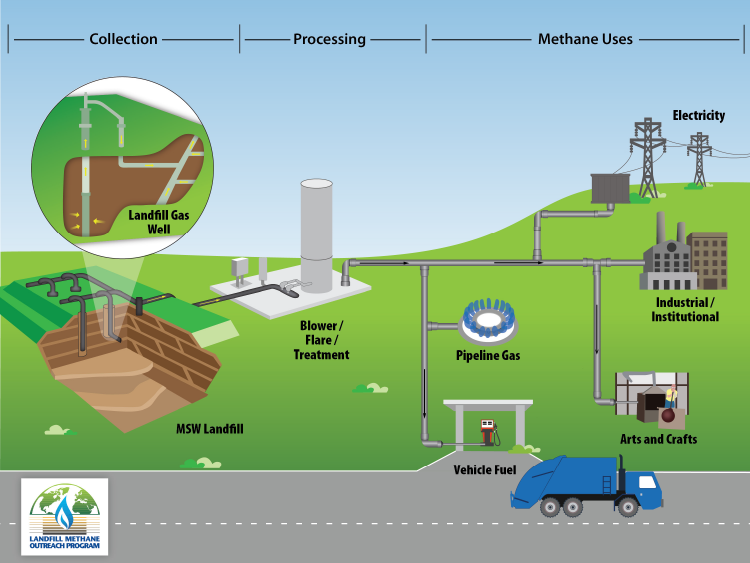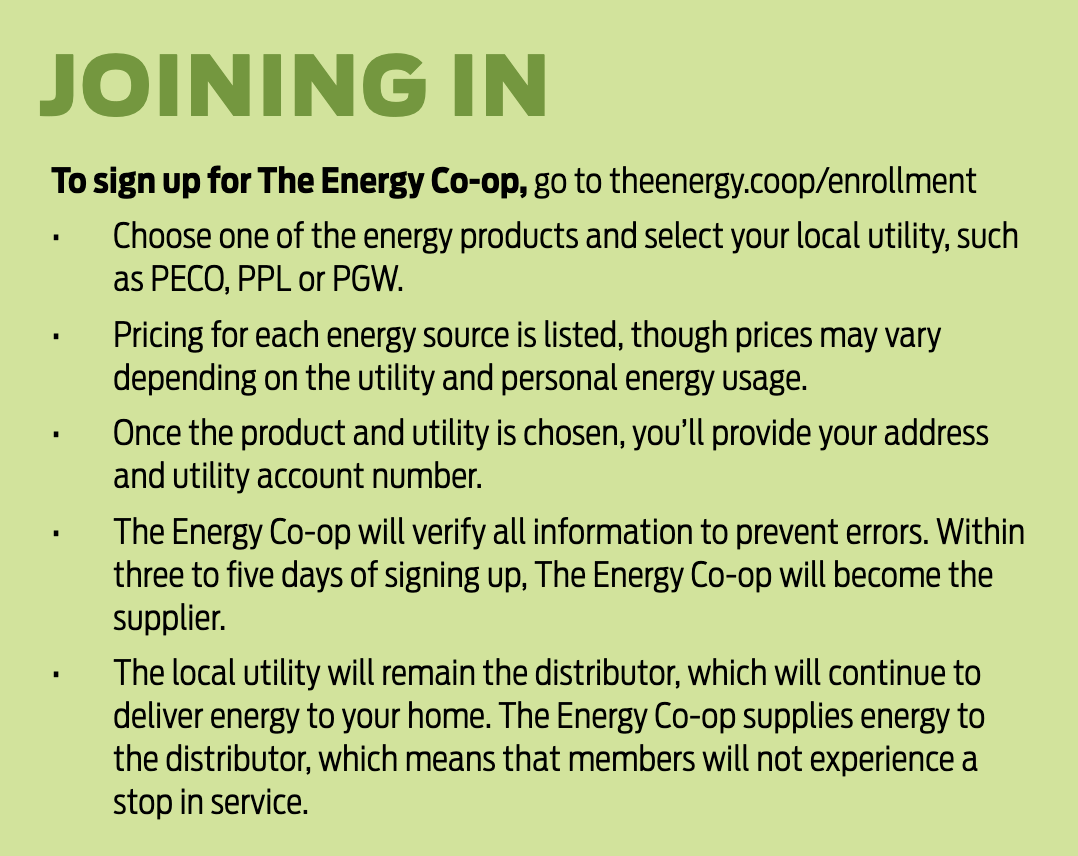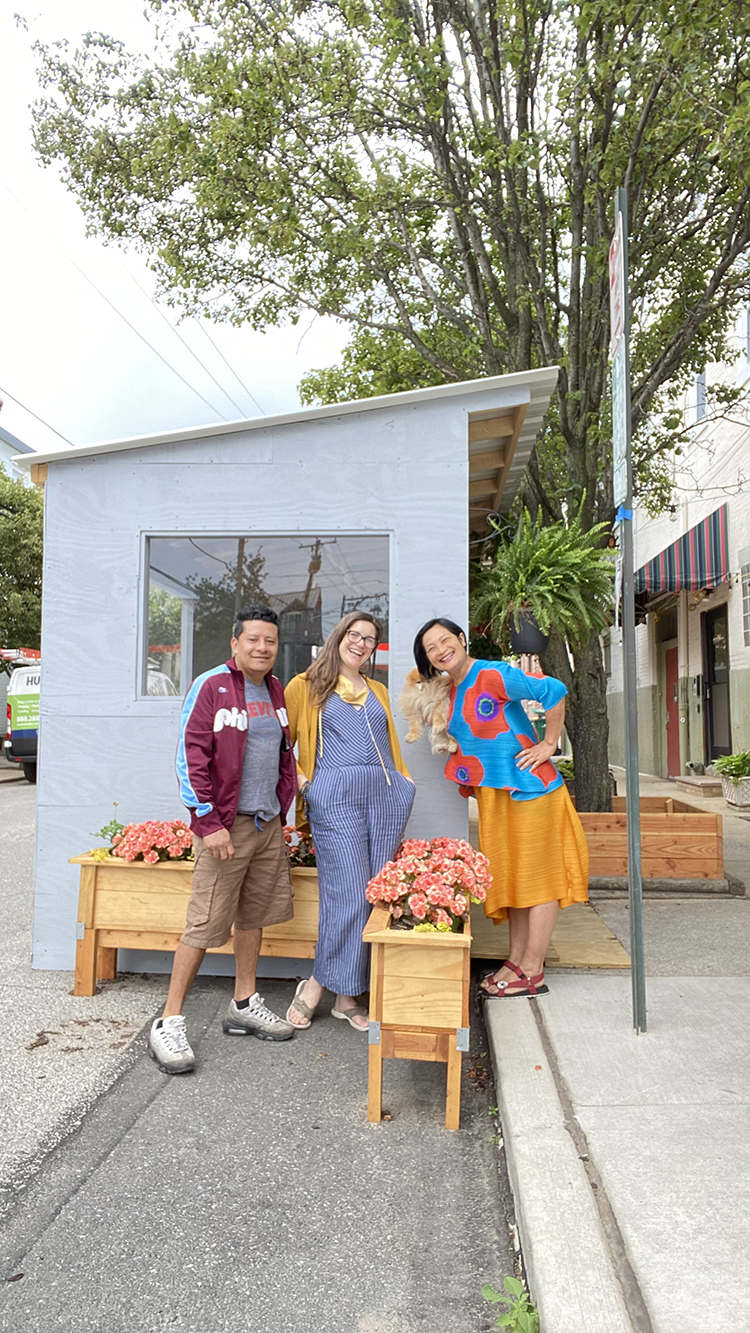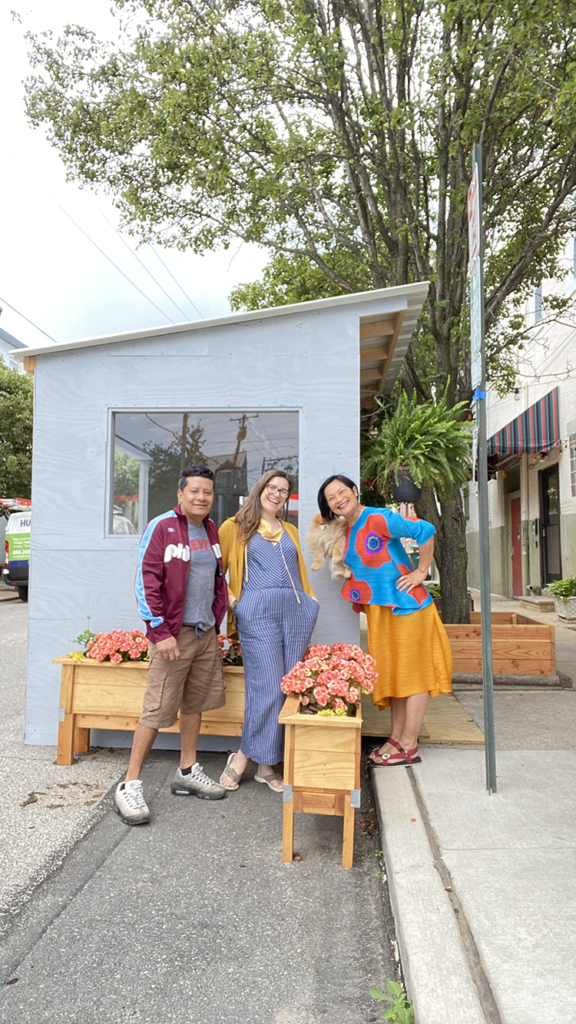Alexandra Kroger, energy program director at The Energy Co-op, is hoping that Philadelphia’s biggest utility providers notice the work they are doing and get inspired.
“As the demand for our renewable energy products becomes more apparent, PECO and PGW might see that as a market signal favoring renewable energy,” Kroger says. “We can’t speculate if this will influence their operations, but it might encourage them to expand their own sustainable practices.”
The Energy Co-op is already helping to build local renewable energy production in Pennsylvania by offering renewable electricity, heating oil and what they call “renewable natural gas” (RNG) to member-owners. (The heating oil offered by The Energy Co-op is not renewable.) Its EcoChoice100 Electricity offers members the choice between state- and nationally-sourced provider options, both of which are powered by 99% wind and 1% solar.
The Pennsylvania option, which according to Kroger is chosen by 60% of their members, supports the growing local clean energy economy.
The Energy Co-op also gives its member-owners the option of purchasing RNG. It’s been offering this service to PECO customers living outside of Philadelphia since 2010, and just started providing RNG to PGW customers in 2020.
RNG, or biogas, is naturally produced by decomposing organic material in landfills and waste facilities.
“Landfills are almost a renewable resource,” Kroger says. “We’re always going to be generating waste—that’s why we call it renewable natural gas.”

Landfills produce methane, which can be captured and turned into energy. If methane is not captured, it can reach dangerous and explosive levels. There have been several incidents caused by methane buildup near landfills. An infamous incident occurred in 1986, when a house in Derbyshire, England, was destroyed by a landfill methane explosion. Methane forms an explosive mixture with air at between 5% and 15% methane.
It also presents a threat to the planet, Kroger explains.
“Methane can have between 25 and 85 times more greenhouse warming potential than carbon dioxide,” Kroger explains. “When it’s burned, it’s going to be converted into a lower potential greenhouse emission.”
RNG is currently more expensive than traditional natural gas, which is extracted through hydraulic fracturing, aka fracking, of shale and other rock formations.
“Geological surveys indicate that there are plentiful sources of natural gas. That’s what helps to keep those prices really low, even though the extraction method is very destructive to the environment,” Kroger says, noting that RNG is currently not as plentiful as conventional natural gas, so prices are not as competitive.
“The number of facilities that are capturing an adequate volume of biogas and converting it for energy use have a relatively low gas volume compared to fracked gas,” Kroger says.
Of course, members of The Energy Co-op are often motivated by a concern for the environment and are willing to pay a premium if it helps support the local renewable energy economy.
“A lot of people who choose to be part of a co-op are values-driven individuals looking for ways to build more sustainable lives,” explains Jon Roesser, general manager of Weavers Way Co-op, whose members helped found The Energy Co-op in 1979. “I believe there is a lot of bargaining power associated with the co-op movement that will only grow.”
Richard Tchen, who joined The Energy Co-Op in 2011, became a member-owner because he wants to suppost a local cooperative with such a powerful and important mission.
“Energy is something many of us take for granted, but we can make change.”










An interesting read for me.
RNG, a byproduct of decomposing organic matter from landfills, presents a sustainable solution to tackle the detrimental greenhouse effect of methane – a gas with a warming potential up to 85 times that of carbon dioxide.
While RNG may currently be more expensive than traditional natural gas due to its limited availability, its environmental benefits are undeniable.